Can My Dog Eat This ? What Not To Feed Your Dog
Dog families, I know we’ve all been there, the two big questions.
We want to feed our dog the best food we can for their health. The other issue is treats. When those big puppy eyes look up at us while we’re having a pizza we are torn between the health question and just making our dog happy. It’s tough, we love food, our dogs love food, we want to share the joy.
I’m going to bring in some guidelines to at least help us to sift through good, maybe not great, and what not to feed your dog because it’s actually dangerous.
As a clinical veterinarian food issues come up with my clients every day. Like so many things in life, there are a lot of choices good and bad to sort through.
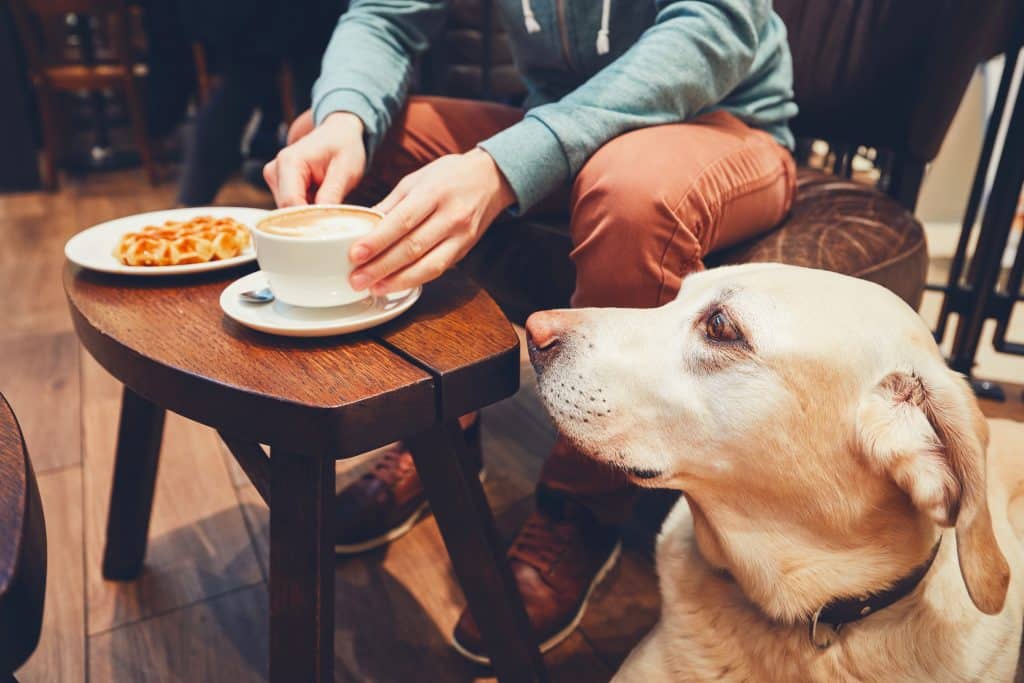
Can My Dog Eat This ? Toxic foods for dogs.
Let me throw a little background in here for you. When we are talking about dog food there is one giant difference between us and dogs. We eat a variety of foods to balance our nutrition, dog food is totally balanced. Every piece of kibble or mouthful of pate has the proper nutritional balance.
So every item we add to the diet unbalances it. It’s tough to accept, I know.
We spend our lives learning about food groups and balance and we try to apply this to our dogs, but it doesn’t work.
So all of the non-dog food items should be considered treats, and should be kept in very low proportions, ideally less than ten percent of the total daily calories.
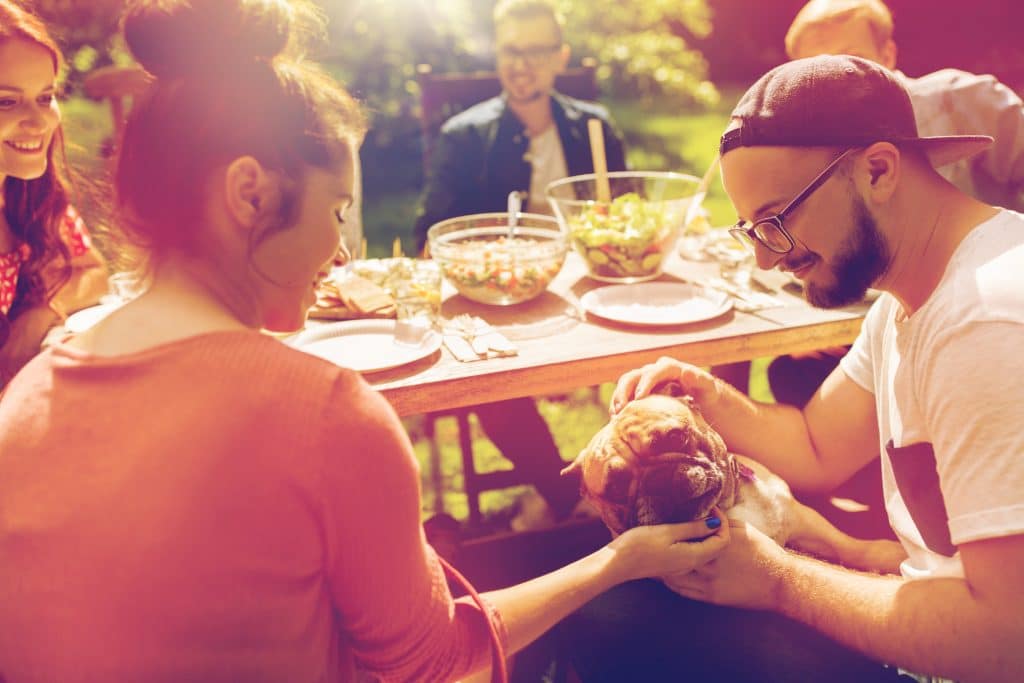
 Alcohol
Alcohol
Alcohol is a poison that has to be processed by the liver. This is one of the things that is very similar to people. Dog’s generally don’t have any tolerance and most don’t weigh nearly as much as a person, so poisoning can occur easily.
The issue goes beyond giving it to dogs. We also have to not allow access. I once had a patient brought in for severe neurologic abnormalities. He had alcohol poisoning. It turned out the owners had a party and thought some guest had been considerate and emptied all of the cups that were around the home. Unfortunately, once everyone went to bed the dog drank all the leftovers. He survived with hospital care, but none of us want to go down that road. (1)
Rank: rarely fatal, no benefit, best avoided..
 Apple Seeds
Apple Seeds
Apple seeds contain cyanide. Holy cow! Right? How are we all not dropping dead? The amount of cyanide per seed is low so a 200 pound adult would have to eat a lot. A 2 pound dog on the other hand, it could be an issue.
Rank: rarely fatal, no benefit, best avoided.
 Avocado
Avocado
There was some research in the late 2000’s about the toxin in avocado, it has been determined though that they are indeed toxic in horses but not dogs. They do have a very high fat content that makes for a lot of calories. The pit is not digestible and can cause fatal obstruction.
Rank: not toxic, no health benefit, keep to a minimum due to high calories, never allow access to the pit. (2)
 Almonds
Almonds
The store bought almonds that we eat are not toxic to dogs, but are high in fat and calories. (3)
Rank: non-toxic, best avoided due to calories.
 Bacon and Fatty Meat
Bacon and Fatty Meat
This is non-toxic but in my experience fatty pork products are highly associated with causing pancreatitis. In addition the calories are not good for your dog.
Rank: non-toxic but strong association with pancreatitis. Should be avoided.
 Beer and hops
Beer and hops
Hops are toxic to dogs and can cause upset stomach and fatal temperature spikes. The problems can start in 30 minutes. This is an issue on raw hops as well as spent hops. (4)
Rank: Toxic, potentially fatal, total avoidance.
 Candy, Chewing Gum, Toothpaste & Mouthwash (Candy made with Xylitol)
Candy, Chewing Gum, Toothpaste & Mouthwash (Candy made with Xylitol)
This is a big one folks! One of the massive dangers here is how different it is for people versus dogs. One piece of xylitol gum can kill a small dog. It causes kidney damage and can’t be reversed if it gets too far. (5)
Rank: High toxicity, fatal 100% avoidance.
 Cat Food
Cat Food
Cat food is non-toxic but a bad idea. Cats use about twice as much protein as dogs so you don’t want to feed cat food in any quantity beyond the 10% treat limit. The dog stealing the cat’s dinner will not make him sick for any reason other than stomach upset due to dietary change.
Rank: non-toxic, keep to treat level only.
 Chocolate
Chocolate
Chocolate confuses the heck out of a lot of people. We’ve all seen a dog eat some and be fine, here’s the story. The stimulant in chocolate is the problem. It is found in higher concentration the darker the chocolate is. Milk and white chocolate are mostly sugar and cause upset stomach. A square of baker’s chocolate or 75% cacao gourmet chocolate could kill a small dog, a bar could kill a large dog. (6)
Rank: Always bad, can be fatal, total avoidance.
 Coffee, Tea & Other Caffeine
Coffee, Tea & Other Caffeine
Dogs are not tolerant of the stimulants. It causes them to have upset stomach, elevated heart rate, panting and if high enough could be fatal. (7)
Rank: Mild toxin, no benefit, in very high quantities could be fatal. Total avoidance recommended.
 Citrus
Citrus
The essential oils in citrus plants are toxic and cause stomach upset. (8)
Rank: Toxin, should be avoided.
 Coconut and Coconut Oil
Coconut and Coconut Oil
This is not a toxin, but the fats can cause significant stomach upset and diarrhea.
Rank: non-toxic but irritant. They should be avoided.
 Cooked Bones
Cooked Bones
These are not toxic but they are an extremely common cause of painful dental fractures. Additionally during the chewing process sharp fragments can break off and be swallowed causing GI pain and possibly even rupture.
The lining of the stomach can thicken over time which is why so many stray dogs eat bones and don’t die. They eat them all the time and adapt. As an occasional treat to a pet though, they do not have this protection.
Rank: Total avoidance recommended due to dental injuries.
 Corn On The Cob
Corn On The Cob
These are not toxic but a very common cause of intestinal obstruction. Dogs rarely chew them but swallow whole pieces and they aren’t digestible. This is one of the most frequent emergency surgeries during the summer.
Rank: Total avoidance due to the risk of obstruction.
 Cinnamon
Cinnamon
This contains no known toxicity. (9)
Rank: Safe but of no known health benefit.
 Fat Trimmings
Fat Trimmings
Ingestion of fat creates a strong risk of causing GI tract upset and pancreatitis. Fat is also very high in excess calories.
Rank: Could lead to fatal secondary issues. Total avoidance is recommended.
 Garlic/Onion/Chive
Garlic/Onion/Chive
This is an infrequent toxin but can lead to a fatal anemic reaction as well as vomiting. This is a difference in how humans handle it so don’t equate it to our diet. As an extra note to pet families, the toxicity Is closer to 100% in cats. (10)
Rank: Low frequency poison in dogs, but can be fatal. Total avoidance is recommended.
 Grapes and Raisins
Grapes and Raisins
This has been a frustrating one because the nature of the poison is still a mystery and the toxicity doesn’t occur every time. Don’t trust this is safe just because your dog ate some at some point and didn’t get sick. (11) . (12)
Rank: Toxic, can be fatal. Total avoidance is recommended.
 Human Vitamins
Human Vitamins
These are not balanced for dogs, toxicity can occur. There are endless products out there and plain and simple avoid them all. On occasion a very specific product may be recommended by a doctor to treat a precise condition.
Rank: toxicity risk. Total avoidance recommended.
 Liver
Liver
This is non-toxic when cooked, but has no benefit to your dog as a regular addition to their diet.
Rank: non-toxic, only recommended at treat levels less than 10% of calories.
 Liquor
Liquor
This has the same alcohol toxicity issue and also is often high sugar content that causes GI upset. Additionally there could be other toxic additives.
Rank: Toxic. Total avoidance is recommended.
 Macadamia Nuts
Macadamia Nuts
The toxin in the nuts has not been identified but they can cause vomiting, muscle weakness, tremors and severe fever. (13) , (14)
Rank: Toxin. Total avoidance is recommended.
 Marijuana
Marijuana
This is a hot button issue right now. There has been virtually no testing done to determine its safe use in dogs. Toxicity is common and causes depression and urine leakage.
Rank: Mild toxin. Avoidance recommended until further research is done.
 Milk & Dairy Products
Milk & Dairy Products
Dogs can become lactose intolerant and products like ice cream are very high in sugar and can cause GI upset. Yogurt is the exception and may be recommended to assist in treating some medical conditions. (15) (16)
Rank: Mild irritant. Generally limit to very small quantities.
 Old Food
Old Food
A basic rule of thumb is, if you think it’s spoiled and you shouldn’t eat it, then don’t feed it to your dog. There are a string of mold and bacterial contaminations that can occur.
Rank: High toxin risk. Total avoidance is recommended.
 Persimmon, Peach & Plum Pits
Persimmon, Peach & Plum Pits
Fruit pits have a high frequency of causing intestinal obstruction. They are very hard and generally swallowed whole.
Rank: High risk for intestinal obstruction. Total avoidance is recommended.
 Raw Meat & Fish
Raw Meat & Fish
Raw foods have a very high danger of bacterial and parasite transmission. For clarity there are diets on the market called raw, but they are pasteurized for safety. (17) , (18)
Rank: Many risk factors. Avoidance is recommended.
 Rhubarb
Rhubarb
This contains a microscopic crystal that can cause severe pain when it is embedded in the mouth and tongue. (19)
Rank: Non-life threatening toxin. Total avoidance is recommended.
 Tomato Leaves
Tomato Leaves
Eating the leaves can cause drooling, vomiting and general GI upset as well as slowing of the heart rate. The tomato fruit is not toxic. (20)
Rank: Toxic plant. Avoidance is recommended.
 Salt
Salt
Ingestion of high amounts of salt can cause severe neurologic problems including seizure and death. The two most common times I’ve seen this is ingestion of play-dough and large amounts of salt water ingested while swimming, and especially retrievers that swim out to grab a toy repeatedly in the ocean. (21)
Rank: Severe toxin and fatality in large amounts. Use caution around high salt products and with ocean swimming.
 Sugar
Sugar
This causes a lot of GI upset such as vomiting and diarrhea in moderate to large quantities.
Rank: Mild toxin, no benefit, avoidance is recommended.
 Tobacco
Tobacco
This causes overstimulation, GI upset and can lead to death. Dogs will sometimes eat cigarette butts if they can.
Rank: Toxin, possibly fatal. Total avoidance is recommended.
 Baker’s Yeast
Baker’s Yeast
This can cause bloating in dogs if it ferments in the stomach or intestines. This can lead to emergency surgery or death. (22)
Rank: Possible death. Total avoidance is recommended.
Can my dog eat this? Safe human food for dogs.
Most importantly for your pals diet a good quality dog food is the best and the rest are for treats only.
These tasty morsels can make great training treats because they are something different and highly attractive to help keep your pup focused. They can also be used to make medicating easier. The less often they get it the more eager they will be for the treat.
 Lean Meat
Lean Meat
This should be cooked, unfortunately for all of us, pets and people our food chain has a lot of contamination. Every time you hear about E. coli and Salmonella cases, dogs can get those too. It’s not about if raw meat is good for dogs, it’s about the infections that come with it.
Cooked meat can make a great training treat in tiny bites.
- Chicken
- Pork
- Salmon
- Shrimp
- Turkey
(23), (24), (25) , (26) , (27)
 Eggs
Eggs
Uncooked eggs have a very high contamination rate with Salmonella. Cooked eggs can make a great training treat, remember little pieces, if they get full it’s not as interesting any more. Adding eggs to a proper diet is not the best way to improve coat luster. (28)
Critical Recommendation
Always remove seeds or pits from fruits before feeding.
They generally contain high levels of toxins such as cyanide if chewed in large amounts. Pits are double trouble because they are large enough to cause a total obstruction in the intestine.
 Fruits
Fruits
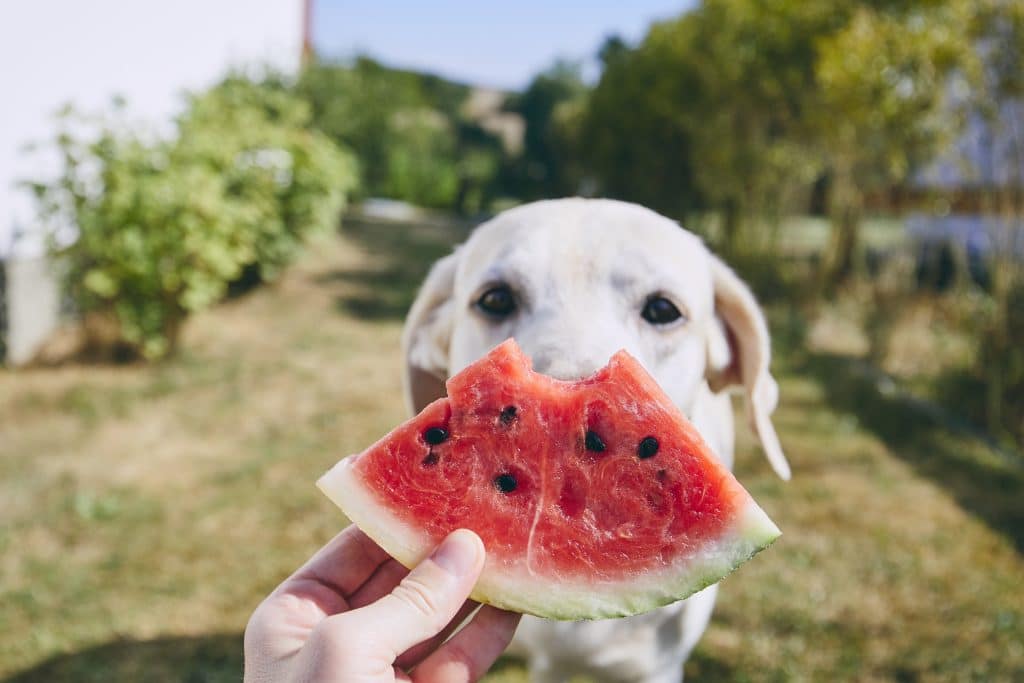
Highly variable and you should check on each one before deciding to use them as a treat. They are usually very high in sugar so they should be limited in amount. The following list of fruits are safe in small amounts. Always avoid the seeds or pits.
Some of these fruits such as blueberries are high in antioxidants but you should always discuss diet supplements that you want to use daily with your pet doctor.
- Apples
- Strawberries
- Blueberries
- Watermelon
- Cantaloupe
- Cranberries
- Oranges
- Mango
- Peaches
- Pears
- Pineapples
- Raspberries
- Plum
- Raspberry
- Tangerine
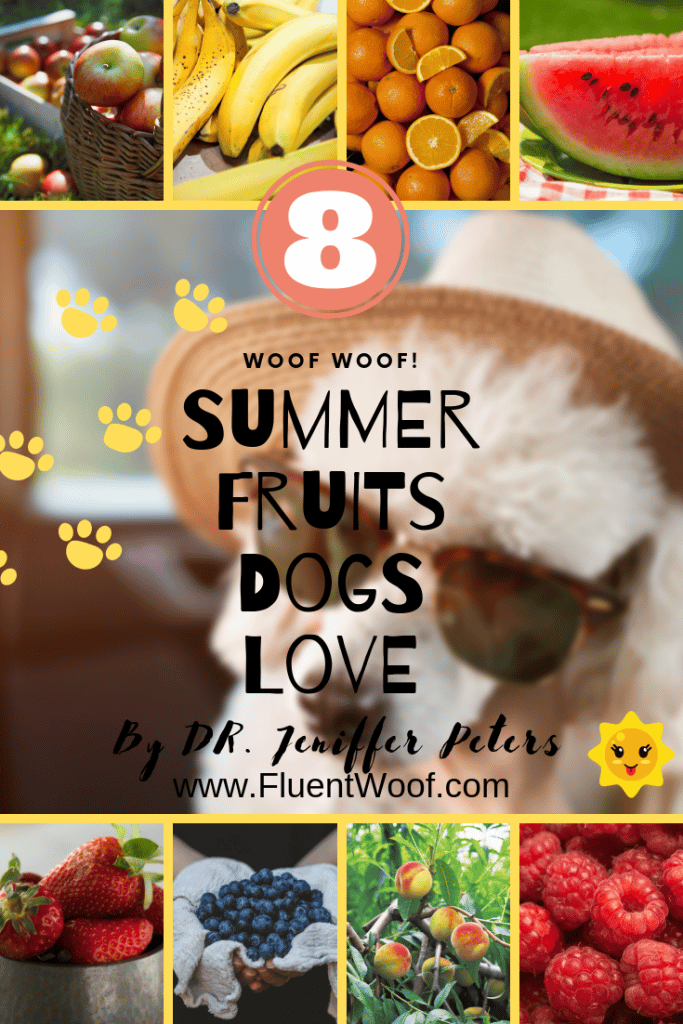
 Bananas
Bananas
They are safe to eat but very high in potassium.
They should not be given to dogs with kidney issues unless specifically instructed to do so by a doctor. Otherwise they are okay as a small treat.
 Vegetables
Vegetables
Many vegetables are appealing to dogs. Often times veterinarians will take advantage of them to modify something in a pets diet. You should never alter a proper diet without a consultation.
The three foods below are safe in small amounts but can cause GI irritation.
- Broccoli
- Brussels sprouts
- Cauliflower
 Celery
Celery
This is safe for dogs but the fibrous nature could choke a small dog. It’s okay to use as a treat if cut into tiny pieces.
 Carrots
Carrots
These are safe, low calorie and crunchy treats. Carrots can often make a great treat for dogs dieting as a substitution for biscuits. Many dogs enjoy them.
 Cucumber
Cucumber
These are safe and low calorie, but no particular benefit to your pup.
 Green beans
Green beans
These are safe and low calorie. Often a good treat for dieting, dogs tend to enjoy them. One of my top picks if a dog is used to table food you can keep green beans on the table and feed those instead of high fat and starch items. If using canned be sure to use low salt brands.
 Peas
Peas
These are safe and dogs often find them tasty but they are higher calorie and should be kept to small quantities.
 Potatoes (only if cooked)
Potatoes (only if cooked)
These are okay in small quantities, but very high in starch which is generally not a good idea. It will disrupt a balanced diet. There is a small toxicity risk in high quantities. (31) , (32)
 Spinach
Spinach
This is safe to eat in small quantities but due to the very stringy nature I do not recommend it, especially in small dogs.
Cooked potato/sweet potato
These are safe and often taken advantage of in bland diets for dogs recovering for GI issues. They should not be added to a normal balanced diet though without discussing it with your doctor. (33)
 Zucchini
Zucchini
These are safe to use as small treats. It is of no particular benefit to your dog, but you don’t have to worry if they sneak a piece.
 Mushrooms
Mushrooms
The mushrooms that we eat in normal cooking are okay in small quantities. Wild mushrooms are very difficult to identify properly so never pick them and feed them to your dog. One mushroom can be fatal. (34) , (35)
 Peanut butter
Peanut butter
Safe to feed our pups and generally really enjoyed. High in fat so this should be a very limited treat. (36) , (37)
 Popcorn
Popcorn
Though it’s technically safe it can cause choking and throat irritation because it’s so dry. If there is butter and salt the calories and salt poisoning could become an issue. I don’t recommend it even for treats but if they sneak some you don’t need to panic. (38)
 Quinoa
Quinoa
This is a safe food but high in calories so it would not be a benefit to your dog.
 Wheat/grains
Wheat/grains
Safe but high in calories so no particular benefit to your dog.
 Yogurt
Yogurt
Activated yogurt contains beneficial digestive bacteria and may be recommended to your dog when they have GI issues. Do not use the artificially sweetened kind, or the fruit due to the high sugar content.
Always check with your family pet doctor.

Before you give your dog any kind of supplemented food to their regular diet check with your doctor to be sure you aren’t unbalancing the diet. If you give your dog a treat or think they may have found or sneaked something and they are behaving oddly call the doctor right away.
Some of the common signs we see with toxicity are:
- Vomiting
- Diarrhea
- Weakness
- Tremors
Many of the toxicities are only treatable when caught early so don’t wait it out, it could be life or death.
What if you can’t reach your veterinarian?
It’s a good idea to always have an emergency clinic contact. Your veterinarian should have the recommended clinic and number posted at the clinic. Take a drive by the emergency office so you don’t have to try and find it for the first time when you are in a panic.
For immediate information on toxic risk contact the ASPCA poison control hotline. The ASPCA has the largest pet toxicity database available. There is a fee for getting advice from a toxicologist but the beauty of it is that it is a one-time case fee. If you open a case with them and have to take your dog to the veterinarian they will continue to give limitless advice on treatment to your doctor with no additional fees. If your dog has a complication a month later there is still no charge to call and discuss if it could be related to the original toxin. (39)
Do not use human poison control hotlines just because they are free. Toxicities in humans and dogs are not the same and human clinics are not trained in dog toxicity. Very sadly I have seen a dog pass away from a treatable condition because treatment was delayed after consult with a human poison control regarding a compound not toxic in humans.
Putting it in a nutshell
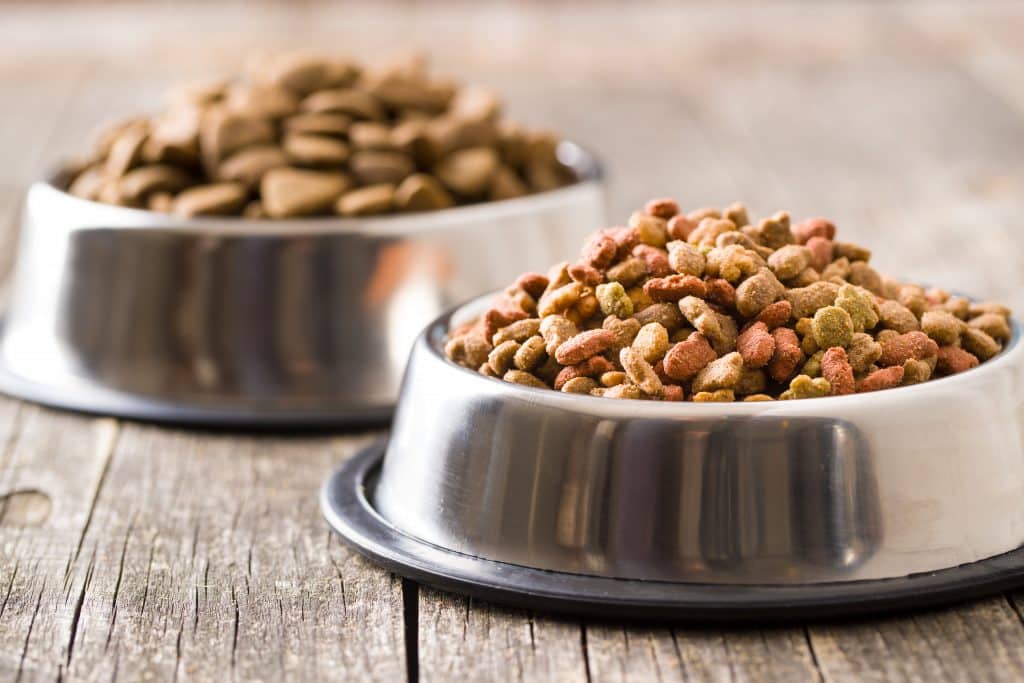
The simplest answer to a vast topic is enlist the help of your family pet doctor. Remember that good quality dog food is balanced and supplementing is often a negative.
We all know we are going to get those big puppy eyes for treats so preplan some healthy options so we don’t give in to bad temptations.
Did this give you the information you need to take even better care of your dog? Let us know in the comments below.
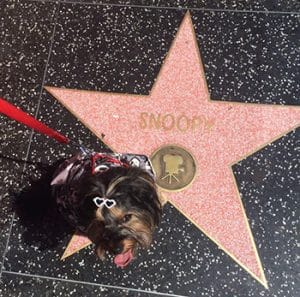
One request from Speedy
Dr. Jennifer Peters put so much effort writing this blog post to provide value to the dog parent community. It’ll be very helpful for me, if you consider sharing it on social media networks.
SHARING IS 
